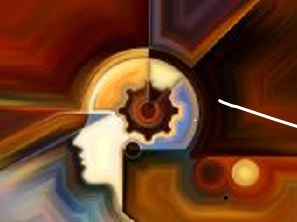Practicing With Problems

What Is “Practicing With Problems?”
The idea of “practicing with problems” is adapted from “dharma practice”, which means the ongoing application of Buddhadharma in one’s everyday life experience. To “practice with” in a more generic sense means simply to systematically engage in self-reflection about our subjective experience. “Practicing with problems” is a strategy for relating to our troublesome problems and circumstances by bringing deliberate, focused, and mindful attention to understanding what is going on with us.
Inquiry
One particular method which is useful in practicing with problems is that of “Inquiry.” Simply stated, “Inquiry” means to formulate a personal question and then listen ongoingly for whatever answers may emerge. To inquire is to “live in” the question of something, simply staying as receptively alert as possible to whatever answers may emerge in the mind, body, and/or in events of life. Inquiry is NOT an intellectual process, nor a process of trying to figure something out or make something happen. It is a process of ALLOWING wisdom to unfold.
I have found it interesting to reflect on the idea that “?” is part of the basic grammar of the mind. “?” launches a process of looking for answers.
If you’ve ever had the experience of not being able to remember a word you’re looking for (on the tip of your tongue, as it were), you know that it often happens that the forgotten word shows up in your mind minutes, hours, or even days later. This common experience demonstrates the nature of the unconscious circuitry of the mind. Simply by asking a question, we invite the unfolding of the answers.
Finding Relevant Questions
Frequently when I describe the process and purpose of Inquiry, people want to know “what should I ask?” That is a great first question! The common wisdom is: Start where you are.
It’s important to understand that the CONTENT of what you ask (the Question) is only part of what’s important about Inquiry. Equally important, or arguably more important, is the mindset we bring to Inquiry; receptivity to PROCESS.
In practicing with problems, inquiry questions morph, evolve, and deepen over time. The following example will convey the basic idea: I woke up in an “off mood” and wasn’t immediately able to connect it with a dream or any other recent event. Curious about what was bothering me, I decided to make this question the object of focus in my morning meditation. I first turned my attention to what I was feeling and simply inquired “What is this about”? I soon recognized that this train of thought was connected to my apprehension regarding an upcoming social event. Although social anxiety is not uncommon for me, I pressed myself to into the question “What am I scared of”? As I unpacked the various levels of answer to this question, I honed in on the feeling of shame. I was averse to feeling shame. This led to the additional question: “How I Am I Afraid I Will Be Seen”? Over ensuing days this changed yet again into the question “Who Am I Afraid I Am”? and, eventually, the softer form ”Who Do I Aspire To Be?”?
Inquiry As The Unfolding of Wisdom
Fundamentally, I believe, what we actually seek when we engage Inquiry is to connect more deeply with our organic or intuitive intelligence. The template I rely upon is one I discovered in the process of recovering from physical injuries. While doing rehab at the gym, I learned that it was often more beneficial to mindfully feel my way through a workout than it was to execute a prescribed sequence of exercises. I discovered that the best workouts were those in which I was able (at least on some occasions) to surrender agency to the wisdom of my body, allowing my body to choose what movement or exercise needed to be done next. With careful embodied attention, my body seemed able to hone in on what was needed for its healing. By bringing awareness to the body in this way, somatic intelligence was able to reveal itself. The frame in such “somatic inquiry” is that whatever arises (including pain) is an expression of the organic intelligence of the body.
So, too, with the psychological process of Inquiry. An inquiry question serves as a container for our experience of problems and difficulties, framing an underlying intention to grow with and from awareness of our emotional life. When we Inquire, we repeatedly look deeply into problems in a way that breathes space into them and allows their hidden meanings to emerge. Inquiry is an intuitive process in which we feel our way forward through our challenges and difficulties, surrendering as best we are able to whatever arises in our experience.
Allowing Your Practice To Find You
People often ask what Inquiry I recommend for them, or what tools or techniques they need to practice in order to solve their problems. In my response, what I generally try to illuminate is the underlying set of assumptions hidden within that question. What does the person feel so urgent about getting, doing, or having? (And, what is at stake?) Are they being driven by aversion to current experience?
More important than what we do is how we are relating to ourselves. When we prioritize the urgency of relief over the slowness of being present with what is, it is very easy to overlook the intuitive wisdom that is seeking to emerge.
Through the intention to “practice with” our difficult and painful experiences, we can begin to embrace the radical possibility that our symptoms and problems are actually appropriate responses to some underlying sense of loss of meaning, purpose, and connection in our world of lived experience. Things begin to shift when we start to recognize that painful emotional states have their own intelligence, often to help us recognize what it is that we do not want to feel. The work given us to do is then to re-own, re-embody, and work through our disowned experience.
The art of Inquiry, of life-as-practice, is a practice unto itself.
Footnote: Suzuki, Shunryu
